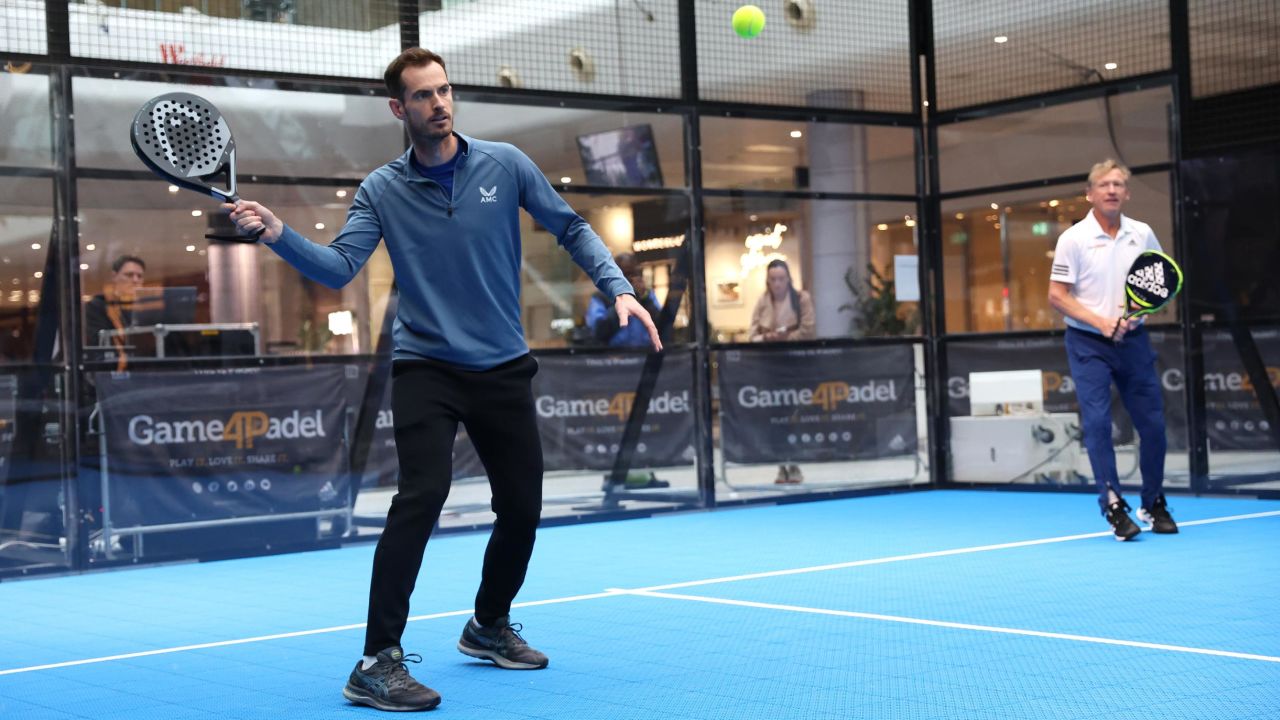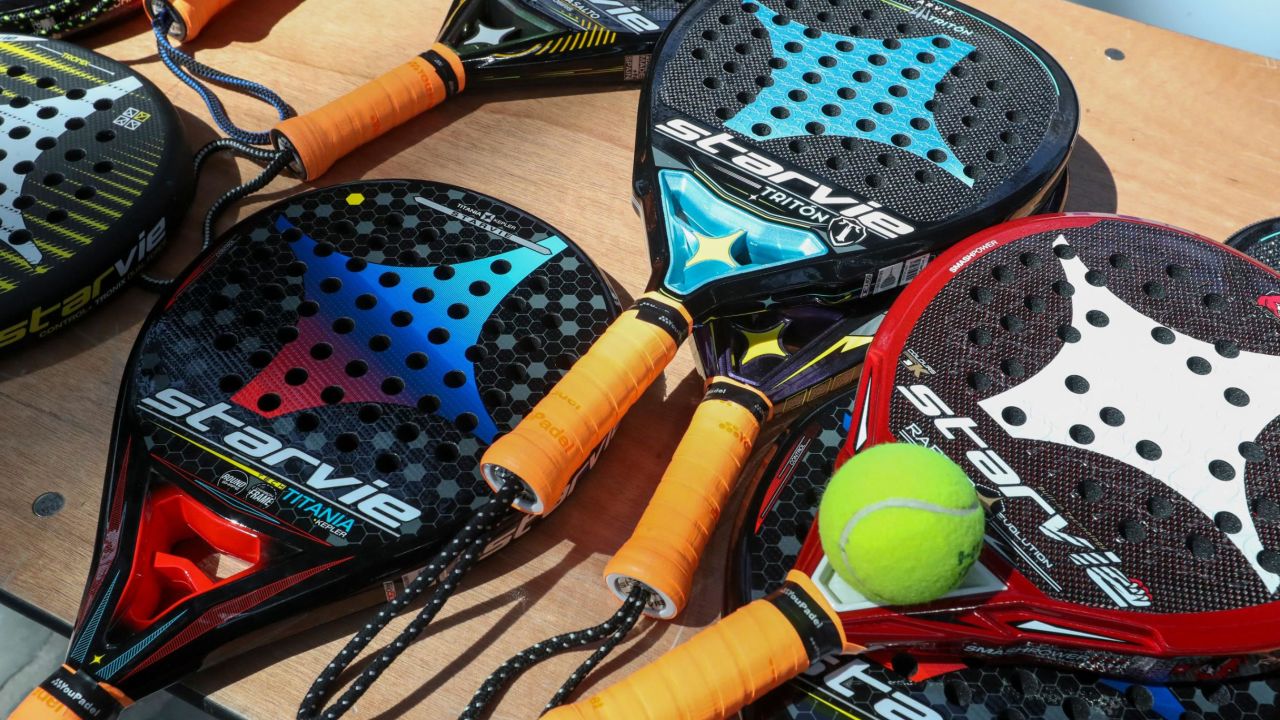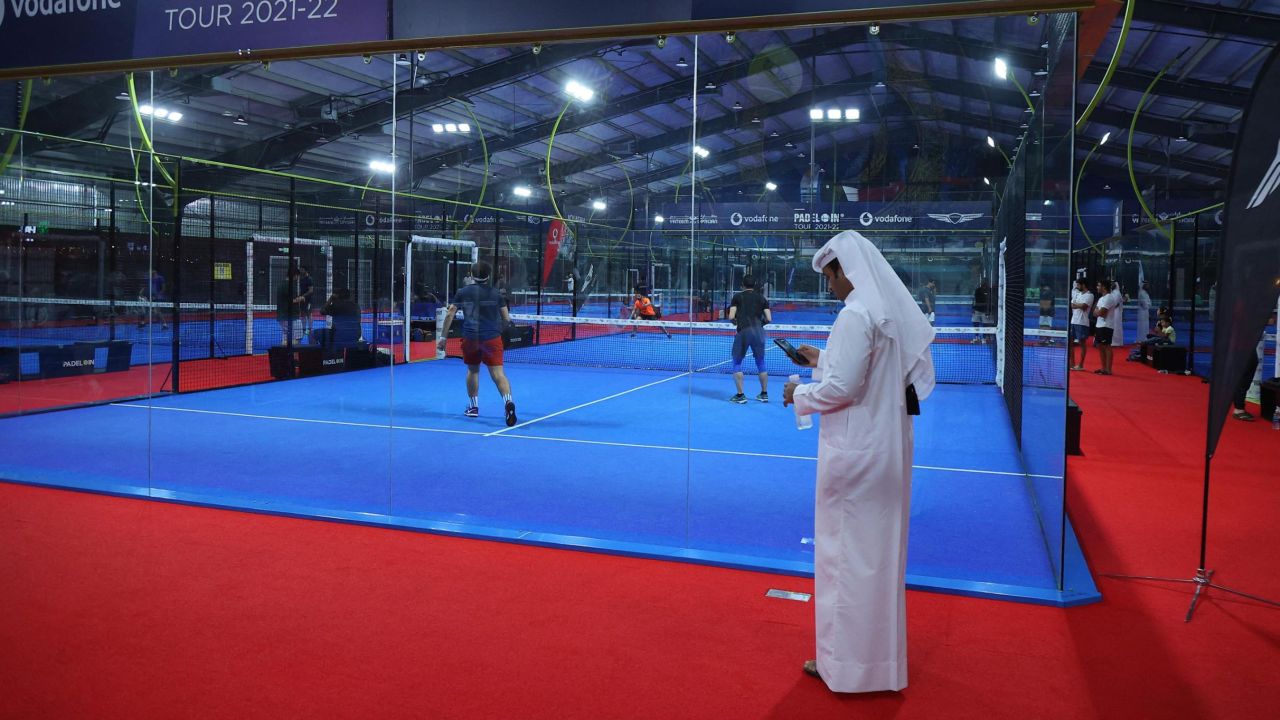[ad_1]
CNN
—
It’s believed to be a sport that started with a siesta.
The intense heat in Acapulco, Mexico meant businessman Enrique Corcuera would take a nap at his family home each afternoon. His daughter Viviana, meanwhile, would irritate him by hitting tennis balls against the walls of the house.
That prompted Corcuera to build another wall for her to hit against, and it was from there that his new, makeshift racket sport began to evolve.
When the ball kept escaping down the side of the wall, Corcuera installed further walls with metal fencing, and then fixed a net across the center of the enclosed space.
What was initially designed as a game to be enjoyed by one family in Mexico has since evolved into padel – a popular racket sport combining elements of tennis and squash.
Today, more than 50 years since its inception, padel has 25 million players in more than 90 countries around the world.
Among those is three-time grand slam tennis champion Andy Murray, who has been aware of the sport ever since he was a teenager training in Spain.
“I think it’s a great social sport,” Murray tells CNN. “I know a lot of the ex-tennis players when they finish playing have taken it up and find that it is great for their fitness, but also not quite as maybe demanding as tennis.”

Unlike tennis, padel is generally played in a doubles format, although the same scoring system is used in both sports.
All serves are underarm, and once returned, shots can be played on the volley, after one bounce, or after rebounding off the wall. Players can also hit shots into the side and back walls lining the 20-meter-long, 10-meter-wide court on their side of the net.
Padel rackets are smaller, thicker, and squatter than tennis rackets and the hitting surface is made entirely of carbon fibre or fiberglass – different to the stringed rackets you would find in tennis, squash, or badminton, or the wooden rackets used in pickleball.
While similar to pickleball – which has surged in popularity in the US in recent years, earning the moniker of America’s unofficial pandemic pastime – padel has gained traction in other parts of the world, namely Europe and South America.
Last year, for example, it is estimated that around 15,000 new padel courts were registered in Europe.

The game has flourished in Spain, where there are more than six million active players and more than 20,000 courts, making padel the second most popular participation sport behind football.
“I think it’s going to keep getting bigger and bigger,” says Murray. “I think [tennis] clubs will continue to want to build courts and there’ll be more demand for it … In Spain, it’s obviously huge.
“I know that one of my ex-coaches, Jonas Björkman – who was No. 1 in the world in doubles and No. 4 in singles – is playing all the time. He’s opened a number of centers in Sweden. Feliciano Lopez, who I played doubles with a few times on the tour … He is playing regularly.”
Murray, who won his three grand slam singles titles at Wimbledon and the US Open between 2012 and 2016, sees a bright future for the sport, so much so that he has invested in Game4Padel, the UK’s leading provider of padel courts.
He’s part of a celebrity line-up of ambassadors and investors in the company, including his brother Jamie, a former No. 1 in the men’s doubles rankings, Liverpool and Netherlands football player Virgil Van Dijk, and former Wales international rugby player Jonathan Davies.
“It was an opportunity to invest in a sport I enjoy playing,” says Murray. “It’s one of the fastest growing sports in the world … I think it’s going to keep getting bigger and bigger. I think clubs will continue to want to build courts and there’ll be more demand for it.”

Played on a court one third of the size of a tennis court, padel is low-impact and low-intensity compared to other racket sports – something that, together with the satisfying “pock” noise of striking the ball, has contributed to its popularity.
In the World Padel Tour, the sport also has a burgeoning professional circuit – though currently padel’s strength in numbers is best exhibited in the amateur game. Could it even reach the same level of global popularity as tennis?
“I think recreationally it probably could in terms of the sheer numbers of people playing the game, just from what I’ve seen in places like Spain, Italy and France, for example,” Jamie Murray tells CNN.
“On a professional level, I honestly don’t know. With tennis, I guess there’s so much tradition and history and stuff across so many big events – I think it would probably take padel a long time to reach that.”
As well as being investors in the game, the Murray brothers are also keen players. Together, you would think they would make a useful pairing on a padel court – if only they put their sibling rivalry to one side.
“We played a few times earlier this year in Australia when we were over there for the Australian Open,” says Andy. “They’ve got a couple of courts there and I took care of him pretty handily, so I don’t believe I’ve lost to him yet.”
But asked which brother is the better player, Jamie has a different answer.
“It’s got to be me, I think,” he says.
[ad_2]
Source link






